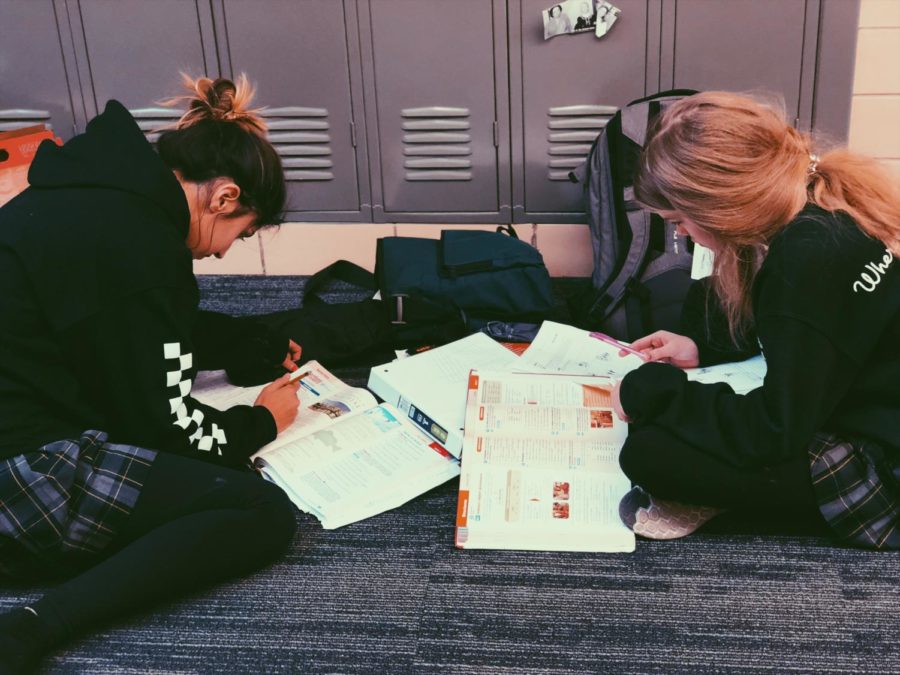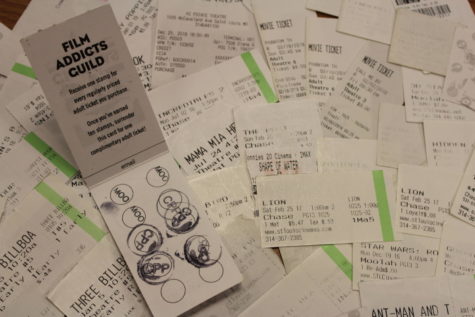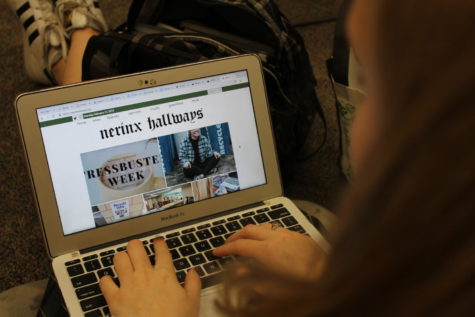Ten Exam Tips
Pictured: Sophomores Katie Gill and Maggie Hughes
It is officially December, the month of Christmas, first snows, and yummy hot chocolate. For the students and teachers of Nerinx Hall, December means exams are upon us. These few weeks in December will be some of the most stressful and busy moments of the entire school year, so here are some helpful tips.
- Compile all notes, handouts, assignments, quizzes, and tests from the whole semester and put them in chronological order to study from. It can even be helpful to create an entire binder dedicated to exams. In the binder, you can put the subjects in order of the exams and fill it with helpful study tools. This helps keep everything in one place.
- Fill out the semester study guide given to you by your teacher. Your teacher knows everything that will be covered in the exam so filling out a study guide created by them will ensure that you review and study the correct information. If the study guide is fairly long, you and a few friends could split it up to finish it.
- Create a Google doc with your fellow classmates in order to share notes. This can be very helpful if your teacher teaches multiple periods. If one class gets farther ahead than the other or covers a certain topic more in depth, then sharing those notes will improve everyone’s knowledge before the exam.
- Take advantage of your teacher’s free periods, contact time, and open class time in order to ask her or him any questions you may have. Teachers are always willing to help because they truly want their students to succeed. If you are confused about something before the exam then you will be confused during the exam, so it will help your grade to ask questions beforehand.
- Attend the NHS study sessions. NHS members are juniors and seniors who have been through the same classes as you at Nerinx. They will be able to provide information, tips, and helpful tricks on what to study and how to survive a specific teacher or class’s exam.
- Eat healthy food, drink lots of water, and get enough sleep. It is vital to take care of your body during exam week. Though it may be tempting to have an energy drink and stay up all night studying for your history test, it is extremely important to get enough sleep. You also need to stay hydrated and eat filling and healthy foods because getting hungry in the middle of your exam is the worst.
- Study with a friend, parent, or sibling. Studies show that writing things out, reading information out loud, and hearing information all help us to remember material better than typing. Try creating flashcards that someone can quiz you over. That way, you write down the information, speak the information, and hear the information all in one activity.
- Know the time and location of your exam. This year students are given 10 minutes to be late until they have to take the test during the make-up time. It’s suggested to plan on arriving at school around 20 minutes before your exam just in case there is traffic, car problems, etc.
- Don’t worry, you’ll make it through. Exams are only 3 short days and only an hour and a half each. As long as you study, do your best, and stay calm, exams should be fine.
- Relax. Exams will soon be over, and it is Christmas time. It is really easy to get caught up with the stress of exams and forget to enjoy holiday fun. Take time to decorate some cookies, watch a movie, or take a drive to see some lights. All these activities would be a well-deserved break.











